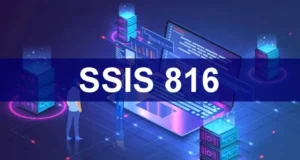
realestatejot info real estate investing paperwork
Investing in and managing real estate inevitably entails dealing with a substantial amount of paperwork. To help you stay organized and compliant, here’s an overview of the essential documents that you should either retain or generate throughout your ownership of the property.
Documents You Should Keep on File
To purchase and validate ownership of your property, you’ll require various types of documents. Ensure to store these securely in a safe location:
Ownership Documents
Ownership documents encompass the array of paperwork associated with the sale of a property. These documents typically include the deed, purchase agreement, inspection reports, and any other relevant paperwork related to the transaction. Additionally, it’s advisable to retain copies of written communication exchanged with lenders, real estate agents, sellers, and other parties involved in the transaction process. https://realestatejot.info/real-estate-investing-paperwork/
These records serve as vital documentation of the property’s ownership history and can be invaluable for reference or verification purposes in the future. Thus, it’s essential to maintain thorough documentation throughout the property acquisition process to safeguard your interests and ensure clarity regarding ownership rights.
Loan Documents
Loan documents are an integral part of the process when applying for and securing a mortgage. Typically, your lender will furnish you with copies of various documents, each serving a specific purpose:
1. Investment loan application: This comprehensive document outlines crucial details such as the requested loan amount, financial projections related to the property, and existing leases associated with it. By providing this information, you afford the lender a thorough understanding of your personal financial history, creditworthiness, and overall financial position. https://realestatejot.info/real-estate-investing-paperwork/
2. Loan commitment: Upon approval of your loan application, the lender issues a formal letter known as the loan commitment. This letter serves as official confirmation of the approval of your loan and includes important details such as key dates, associated fees, and any specific conditions that must be met to finalize the loan agreement.
3. Loan note: The loan note is a significant document that serves as tangible proof of your acceptance and receipt of the loan amount from the lender. It outlines the terms and conditions of the loan, including repayment terms, interest rates, and any other pertinent details relevant to the borrowing arrangement.
4. Deed of trust: This document contains essential information related to your mortgage, including the loan account number, personal details of the borrower, loan amount, and legal specifications associated with the mortgage agreement. It’s important to note that the deed of trust is distinct from the deed of the property itself, as it primarily pertains to the mortgage agreement and associated legalities.
By providing you with these loan documents, your lender ensures transparency and clarity throughout the mortgage process, facilitating a smooth and efficient transaction while also safeguarding the interests of all parties involved. https://realestatejot.info/real-estate-investing-paperwork/
Tax Records
Maintaining meticulous tax records is essential, especially when it comes to rental properties. Specifically, you are required to report both income and expenses for all rental properties on the Schedule E section of your IRS Form 1040.
If your expenses exceed your rental income, you may be eligible to claim a deduction against your income for the amount of money lost. Conversely, if your rental income surpasses your expenses, you are obligated to pay income tax on your rental income. https://realestatejot.info/real-estate-investing-paperwork/
To substantiate your claims regarding rental income and associated expenses, it is imperative to keep thorough paper records. It’s advisable to establish a separate file for various types of documentation:
1. Receipts: Retain all receipts pertaining to rental income, expenses, and significant upgrades, such as property renovations. These receipts serve as tangible evidence of transactions and expenditures related to your rental property.
2. Bank statements: Maintain paper copies of bank statements to allow for cross-referencing with your records and those of the bank. This practice ensures accuracy and facilitates the resolution of any potential accounting discrepancies or questions that may arise.
By diligently maintaining these paper records, you not only fulfill your legal obligations but also establish a comprehensive and reliable documentation system. This system not only helps streamline tax preparation processes but also provides valuable support in the event of audits or inquiries from tax authorities. Additionally, keeping organized records contributes to better financial management and decision-making regarding your rental properties.
Documents You Should Create
As you embark on the journey of renting and managing your property, it’s crucial to establish and maintain various documents to effectively track expenses and manage tenants. https://realestatejot.info/real-estate-investing-paperwork/
1. Budget: Develop a comprehensive monthly budget that meticulously outlines all expenses and income associated with the property. This detailed budget serves as a crucial tool for monitoring your financial standing throughout the year. By accurately tracking expenses and income, you can proactively manage your finances and mitigate potential challenges, particularly during tax season. Having a well-organized budget in place can help alleviate stress and ensure financial stability in the long run.
2. Tenant records: Create individual files for each of your tenants and meticulously document all relevant information, including copies of rent checks, lease agreements, and any communication with tenants. Maintaining thorough tenant records is essential not only for administrative purposes but also for legal protection. In the event of disputes, evictions, or legal proceedings, these records serve as valuable evidence to support your position and actions. By diligently organizing and preserving tenant records, you can effectively manage tenant relationships and mitigate potential risks associated with property management.
3. Maintenance record: Keep a detailed and up-to-date log of all maintenance expenses incurred throughout the year. Documenting maintenance activities, repairs, and associated costs enables you to accurately assess the overall upkeep of the property and plan for future maintenance needs. https://realestatejot.info/real-estate-investing-paperwork/
By maintaining a comprehensive maintenance record, you can identify trends, anticipate recurring expenses, and establish realistic budgets for repairs and maintenance in subsequent years. This proactive approach not only ensures the ongoing maintenance of your property but also helps optimize cost management and asset preservation over time.
In summary, the creation and maintenance of these essential documents are integral to effective property management. By establishing robust documentation systems for budgeting, tenant records, and maintenance, you can enhance operational efficiency, mitigate risks, and ensure compliance with legal and financial requirements in your role as a property owner and manager.



